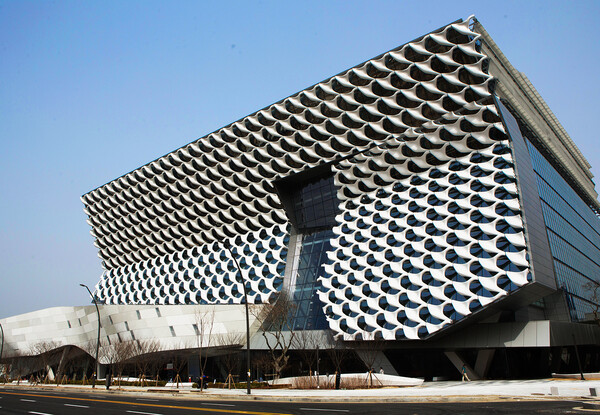Kolon Life Science said Monday that its patent, “Method for Evaluating the Efficacy of Cell Therapy” for TG-C (formerly Invossa) -- a cell and gene therapy for osteoarthritis being developed by its affiliate Kolon TissueGene -- has been registered in Canada.
The patent, jointly filed by Kolon Life Science and Kolon TissueGene, has already been registered in the United States, Japan, China, Australia, Hong Kong, and Singapore.

According to Kolon Life Science, TG-C is a cell-gene therapy composed of two components: Solution 1, which contains autologous cartilage-derived chondrocytes, and Solution 2, consisting of genetically modified cells introduced with “TGF-β1” -- a gene that inhibits inflammation and promotes cartilage production -- that have been irradiated. These two solutions are mixed in a 3:1 ratio and injected into the knee joint cavity. This treatment is said to alleviate pain by suppressing joint inflammation and to improve joint function and structure.
The core of the patent lies in establishing criteria to quantitatively evaluate the efficacy and quality of TG-C. Key indicators include the expression levels of TGF-β1 secreted by the genetically modified cells in Solution 2 and TSP-1 produced by the cartilage cells in Solution 1. TSP-1 is a multifunctional protein involved in maintaining immune homeostasis. When these components are expressed at or above a specified level, the therapeutic effect of the produced treatment is consistently maintained, according to Kolon Life Science.
This technological foundation is expected to serve as a core driving force behind the future global expansion of TG-C, the company said. Cell therapies, which are based on living cells, are highly sensitive to minor changes in raw materials, culture conditions, and process parameters. Ensuring consistent quality throughout development and commercialization remains a key challenge. Consequently, regulatory authorities and partner companies place great importance on establishing clear evaluation criteria that scientifically demonstrate the efficacy and reproducibility of the therapy.
The company noted that this patent also carries significant regional implications. Canada is recognized as one of the most technologically advanced countries with strict regulatory standards, alongside major markets such as the U.S. and Europe. It is also regarded as a rapidly growing emerging market in the field of cell therapy. According to global market research firm Spherical Insights, the Canadian cell therapy market is expected to grow at an average annual rate of 24.29 percent from 2023 to 2033, reaching approximately $1.06 billion by 2033.
Kim Sun-jin, CEO of Kolon Life Science, said the Canadian patent registration further strengthens the foundation for objectively evaluating TG-C’s efficacy in treating osteoarthritis.
“This is an important milestone in enhancing scientific credibility for our global market entry,” he added.
Related articles
- Kolon TissueGene moves arthritis gene therapy into spine trial after FDA green light
- Kolon Life Science turns profit in chemicals biz, eyes '2nd Invossa'
- The man behind Invossa’s revival explains Kolon Life Science’s R&D chain
- Kolon TissueGene taps ex-Daewoong CEO to tackle financial woes, boost drug development
- Kolon's gene therapy shows sustained pain relief in preclinical diabetic neuropathy models
- Kolon Life Science wins EcoVadis Silver Medal in global ESG assessment
- [ESMO 2025] Kolon Life Science unveils promising oncolytic virus data
- Kolon Biotech earns 2025 Leisure-Friendly Management Certification for work-life innovation
- Kolon faces bio-business uncertainty as key developer weighs early exit

